 Harold A. Stevens Harold A. Stevens ’36
Harold A. Stevens Harold A. Stevens ’36
Harold A. Stevens
Class of 1936

Courtesy of the New York Supreme Court.
Those years at Boston College were among the most enjoyable years of my life.
The Honorable Harold A. Stevens (1907-1990) broke racial barriers as the first African-American student and graduate of Boston College Law School. Interested in Catholicism, he came to BC Law after being denied admission to the then-segregated University of South Carolina in his home state.
Stevens worked as a bellhop in Brookline hotels to finance his education. He thrived at BC Law and recalled his years here as “among the most enjoyable of my life.” He was elected vice-president of his class during his 3L year. Following graduation, he moved to New York City and passed the Bar, served in World War II, and helped establish one of the city's first interracial law firms. Stevens also had a rich career as a public servant. He was elected to the New York State Assembly in 1947, appointed to the bench in 1950, served as Presiding Justice of the Appellate Division of the New York Supreme Court, and became the first Black justice on the New York Court of Appeals in 1974.
HIGHLIGHTS:
- First Black person to graduate BC Law
- New York State judge
- Brooklyn Dodgers fan
- Multiple honorary degrees
- Recipient of the Pro Ecclesia et Pontifice award from Pope Pius XII for his work on race relations
 David S. Nelson David S. Nelson ’60
David S. Nelson David S. Nelson ’60
David S. Nelson
Class of 1960
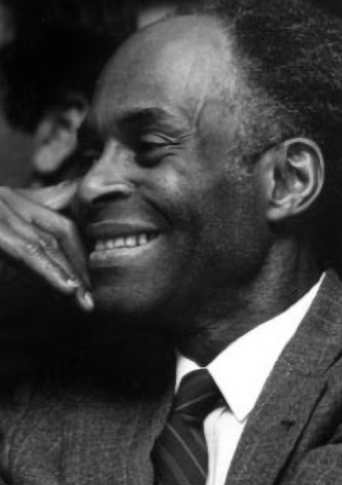
He touched my life just as he has touched the lives of so many people. All of us, and BC Law, are better for having had the opportunity to know and benefit from Judge Nelson.
- Charles (Chuck) Walker, ’78
The son of Jamaican immigrants, David S. Nelson grew up in Boston and graduated from Boston College with a B.S. in 1957. He pondered various career options including teaching and the priesthood—he even briefly entered the seminary—before deciding to pursue law. He returned to BC to become a Double Eagle, working at a supermarket during law school to help pay the bills. After graduation, he practiced law for over a decade before becoming a judge, including working at a Boston law firm and serving as the chief of the Consumer Protection Division at the Massachusetts Attorney General’s Office. He loved providing legal services to social service agencies.
Reluctant to give up life as a practitioner, Nelson finally accepted a fourth offer to become a Massachusetts Superior Court judge in 1973. In 1979, he was appointed to the United States District Court in Boston, making him the first African-American to serve in the federal judiciary in Massachusetts. In 1986, Nelson prominently presided over the racketeering trial of Gennaro Angiulo, underboss of the Patriarca crime family, which would go down in Massachusetts history as the Commonwealth’s longest federal criminal trial to date.
Judge Nelson served five terms on the Boston College Board of Trustees, sitting as chairman from 1984–1987. He passed away in 1998, but his legacy lives on. In his memory, the United States District Court in Boston established the Nelson Fellowship, which offers high school students the opportunity to shadow federal judges and learn about the judicial system. In 1992, the BC Law Alumni Association created the Honorable David S. Nelson Public Interest Law Award in his honor; it is awarded annually to alumni who have dedicated their careers to public interest law.
HIGHLIGHTS:
- First African-American federal judge in Massachusetts
- Massachusetts Superior Court judge
- Namesake of the Honorable David S. Nelson Public Interest Law Award
- Namesake of the federal district court’s Nelson Fellowship
- Recipient of the BC Law St. Thomas More Award
 Ruby R. Wharton Ruby R. Wharton ’69
Ruby R. Wharton Ruby R. Wharton ’69
Ruby R. Wharton
Class of 1969
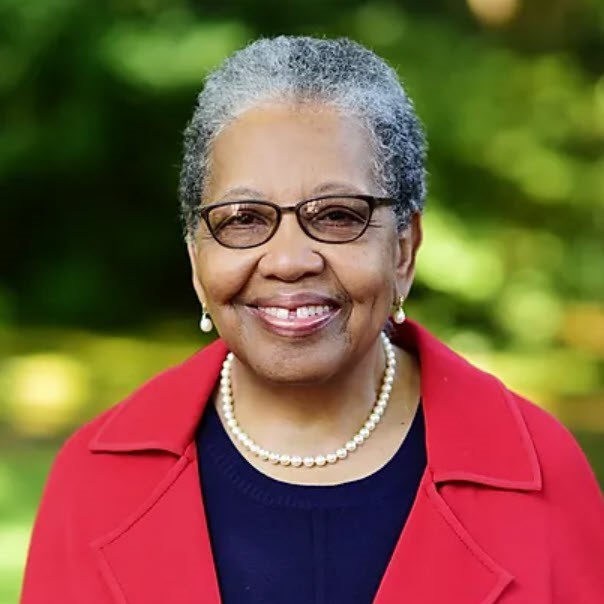
I yearned to speak for those who could not speak for themselves, to articulate and express the desires and needs and hopes of African-Americans who had been kept from voting and other rights they deserved as American citizens.
After graduating with honors from Southern University in Baton Rouge, LA, Ruby Wharton moved north to attend BC Law at the urging of then-Dean Robert Drinan, S.J. In addition to Wharton becoming the first Black woman to graduate from the law school, her class of 1969 was the first to have two African-American graduates: Wharton and Judge Benjamin Jones, both of whom returned to the school as keynote speakers for the 2009 Ruth-Arlene Howe Heritage Banquet.
Wharton worked after graduation as a legal aid and civil rights attorney in Atlanta, GA, and Washington D.C., including advocating on behalf of indigent clients in housing matters. In 1973, Wharton and her husband A C, also a legal services attorney, moved to Memphis, TN. She simultaneously juggled work as a public defender and private practitioner in civil matters. In 1980, the couple joined forces to establish the law firm Wharton & Wharton, while also finding the time to raise six children. She still practices with two of her sons at the Wharton Law Firm in Memphis where she served as First Lady during her husband’s tenure as county and city mayor from 2002-2015.
Wharton remains active within the NAACP, serves on the board of the Memphis Theological Seminary, and worked with Sacred Heart Southern Missions for years. She also devoted over 25 years of service to the Boy Scouts of America, for which she was awarded the Silver Beaver Badge, the highest honor bestowed upon scouting volunteers.
HIGHLIGHTS:
- First Black woman to graduate from BC Law
- Founder of a longstanding Memphis law firm
- Recipient of the Honorable Harold A. Stevens Award
- Namesake of Memphis’s Ruby R. Wharton outstanding Woman Award
 Robert "Bobby" Scott Robert "Bobby" Scott ’73
Robert "Bobby" Scott Robert "Bobby" Scott ’73
Robert "Bobby" Scott
Class of 1973
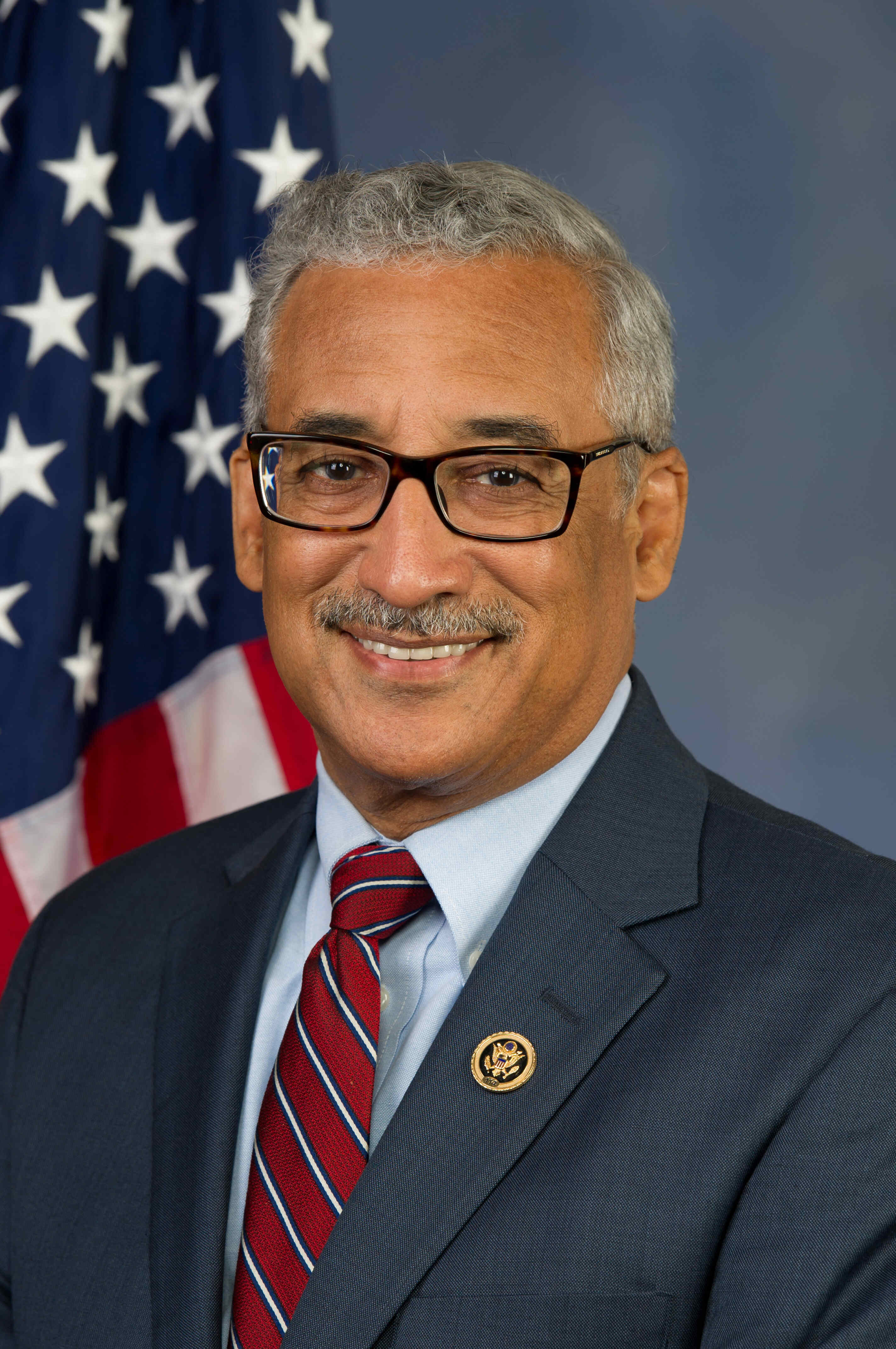
When faced with the temptation to take the easier route, I hope you remember the Jesuit principles that Boston College Law School seeks to instill in each of its students: public service, social justice, and a commitment to excellence.
After graduating from BC Law, Representative Bobby Scott practiced law in Virginia for almost two decades, doing legal aid work and volunteering with the local branch of the NAACP. He ran for Congress in 1992 and has proudly served Virginia’s 3rd Congressional District since 1993. He is the first African-American representative from Virginia since Rep. John Mercer Langston lost reelection in 1891, and he is the first representative of Filipino descent to serve in Congress.
Rep. Scott served as the honorary chair for the BC Law Black Alumni Network conference titled “Report Card on Affirmative Action,” held in Washington DC in 1996. He was honored with the David S. Nelson Award in 1997, and he returned to BC Law as the commencement speaker for the Class of 2019.
Rep. Scott is the current Ranking Member of the House Education Committee. He has tirelessly worked to advance equity in education, student loan forgiveness, access to affordable healthcare, and protections from workplace discrimination. Before entering politics, Rep. Scott served in the Massachusetts Army National Guard and Army Reserve.
 Barbara Dortch-Okara Barbara Dortch-Okara ’74
Barbara Dortch-Okara Barbara Dortch-Okara ’74
Barbara Dortch-Okara
Class of 1974
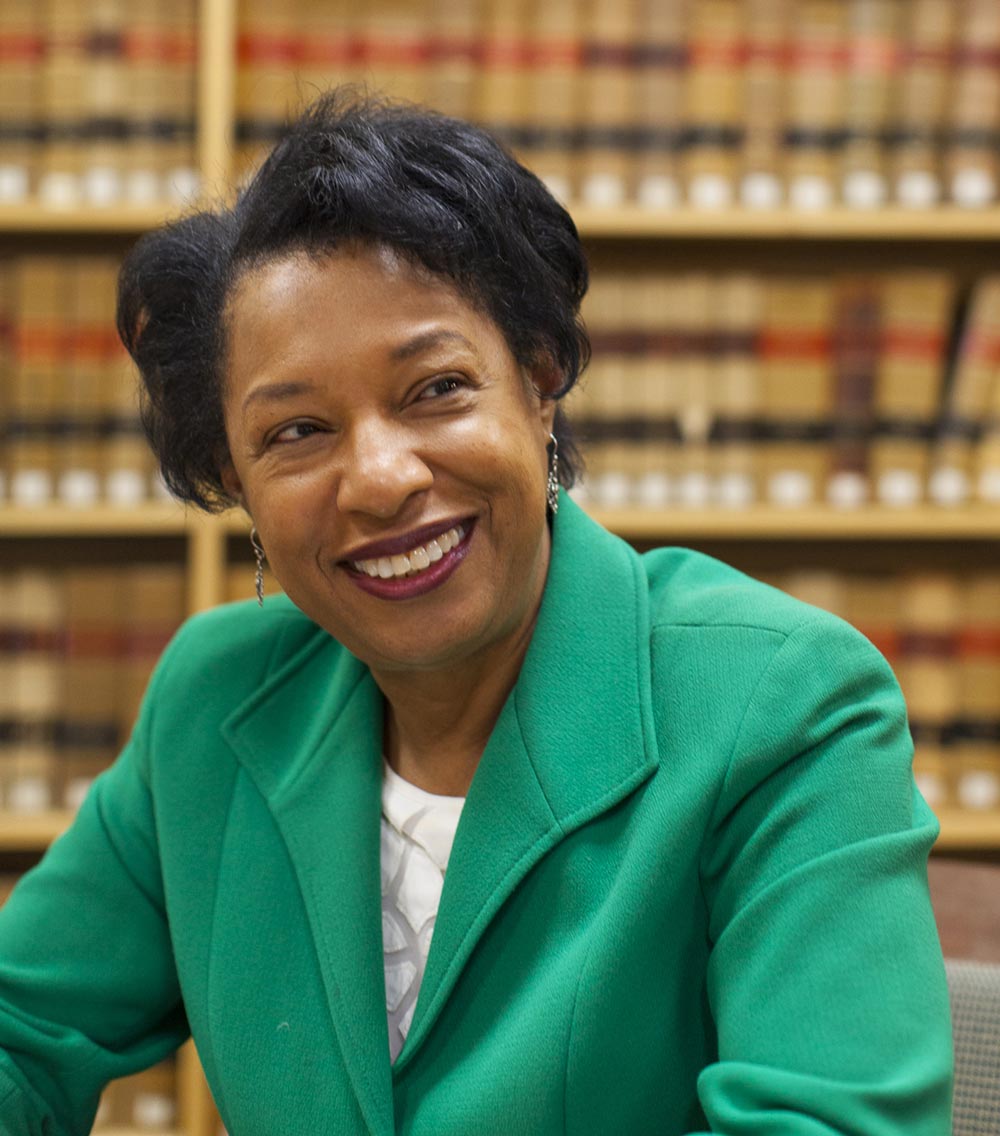
Courtesy of New England Law | Boston
The Hon. Barbara Dortch-Okara grew up in segregated Memphis, TN, during the height of the Civil Rights Movement, where she vividly recalls observing her older brother participating in lunch-counter sit-ins. Galvanized by the injustices she experienced as a young girl, Dortch-Okara moved to New England in 1967 to attend Brandeis University, where she graduated with a degree in political science. She enrolled at Boston College Law School shortly thereafter. In a 1989 interview, she described her first year as hard and a bit of a shock but recalled relaxing into the rhythm of law school in the second and third years. After graduating and passing the Bar, she worked primarily in the public sector before moving to the judiciary.
In 1984, Governor Michael Dukakis appointed Dortch-Okara to the Boston Municipal Court, where she helped launch the city’s first alternative sentencing program for women. After five years, she was appointed to the Massachusetts Superior Court. In 1998, the Supreme Judicial Court appointed Judge Dortch-Okara as the Chief Justice for Administration and Management of the Trial Court of Massachusetts, making her the first woman and first African-American to hold that post. Her time on the bench was marked by her deep commitment to addressing discrimination among the 7,000 employees that served in her jurisdiction.
In 2011, Judge Dortch-Okara’s many contributions were recognized by the Massachusetts Black Lawyers Association, which honored her with its Trailblazer Award. The following year, after nearly 30 years on the bench, she retired as a judge and began teaching at New England Law.
HIGHLIGHTS:
- First Black woman appointed to the Massachusetts Superior Court
- Founding member of the Massachusetts Black Women Attorneys
- Recipient of BC’s William J. Kenealy, S.J. Alumna of the Year Award
- Appointed chair of the State Ethics Commission, 2013-2018
 Ruth-Arlene Howe Ruth-Arlene Howe ’74
Ruth-Arlene Howe Ruth-Arlene Howe ’74
Ruth-Arlene Howe
Class of 1974
Professor Howe is the embodiment of all the best things at the law school. She moves with love, she moves with purpose. She moves in her dedication to serving others. And she set that expectation for us.
- Arianne Waldron, ’14
Professor Ruth-Arlene Howe has dedicated over 40 years to the students, staff, faculty, and alumni of BC Law. She arrived as a law student in 1971. Trained as a social worker, she initially took classes as the spouse of a BC faculty member (her husband Ted Howe was a professor in the BC School of Social Work). Soon, she was fully committed to the program, all while raising four young children. After graduation, she continued to work on projects with Professor Sanford Katz, while teaching as an adjunct at BC Law and the Simmons School of Social Work. She joined the faculty as an associate professor in 1978 and became the first Black woman to secure tenure at BC Law in 1981. She became Professor Emeritus upon her retirement in 2009. Professor Howe taught 1L property for five years, in addition to Income Maintenance & Social Policy and Family Law courses. Her scholarship focused primarily on the rights of children and particularly issues surrounding transracial adoptions.
A beloved figure for students, Professor Howe served as the long-time faculty advisor to the Black Law Students Association (BLSA) and the founding faculty advisor to the Third World Law Journal (later restyled the Journal of Law and Social Justice, before being folded into the Boston College Law Review). Howe supported students on and off campus; many fondly remember potluck dinners at her home. According to Judge Leslie Harris ’84, “Ninety-five percent of students of color would say that she was a mentor, a person they could go to for guidance—not just while we were in school, but even after school. It’s one thing to be connected to a professor while you’re there, but another to stay connected.”
She is a founding member of the BC Law Black Alumni Network (BAN), which was formed at her Brookline home in 1985. BAN’s Ruth-Arlene W. Howe ’74 Black Student Initiative and the annual Ruth-Arlene W. Howe Heritage Dinner both honor the longfelt impact of her presence on our community. In 2017, Howe received the Lifetime Achievement Award from The Massachusetts Black Lawyers Association at their annual gala.
 Walter Prince Walter Prince ’74
Walter Prince Walter Prince ’74
Walter Prince
Class of 1974
I wanted to graduate from BC Law. Once I got in, you would have to drag me out. I was going to perform; I was going to do well; I was going to graduate. I had a singular focus.
Walter Prince knew he wanted to be a lawyer as a kid. He attributes his admission to BC Law to the Hon. David Nelson ’60, an alum, judge, and mentor who encouraged him to apply. Prince describes his first year as terrifying while also being grounded in a warm, receptive institution. He remembers studying and good meals at the home of his classmate, Ruth-Arlene Howe. Upon graduation, Prince worked as a public defender in Roxbury, MA, and saw the community’s challenges with overcharging and a lack of respect from the police. He also served as an assistant United States attorney, prosecuting federal cases and ultimately becoming chief of his division. He left to start his own law firm in 1980, which has evolved into his current firm, Prince Lobel, now around 100 attorneys strong. In the mid-1980s, Prince left the firm for a few years to serve as general counsel to the Massachusetts Bay Transportation Authority, where he handled every lawsuit involving the public transit agency.
In addition to his decades of experience in the public and private sectors, handling both civil and criminal matters, Prince has served on numerous boards and committees, including the Massachusetts Black Lawyers Association (former president), the BC Law Board of Overseers, the Ford Hall Forum, and various judicial nominating committees. He also taught at BC Law for over 20 years and always emphasizes to students that there is a place for them in this profession.
HIGHLIGHTS:
- Founding partner of Prince Lobel
- Division chief at U.S. Attorney’s Office
- General counsel for the MBTA
- Recipient of BC’s William J. Kenealy Alumnus of the Year Award
 Chuck Walker Chuck Walker ’78
Chuck Walker Chuck Walker ’78
Chuck Walker
Class of 1978
You don’t graduate and leave Boston College. Boston College graduates with you and follows you . . . . It’s an inheritance.
Charles “Chuck” Walker didn’t think he wanted to be a lawyer. He was creative, enjoying stints as a cartoonist and stand-up comedian. But his father, who had been sued as an Air Force pilot for violating segregation laws, wanted a lawyer in the family. Propelled by stories of his dad’s acquittal through the hard work of the NAACP and Thurgood Marshall, Walker moved across the country from California to attend BC Law.
As a 2L, Walker helped to inspire and co-found the Third World Law Journal (later restyled the Journal of Law and Social Justice, before being folded into the Boston College Law Review). He also served as the first president of the BC Law Black Law Students Association (BLSA). In that role, he worked to create community and camaraderie at BC Law but also cultivated connections with other local law schools through mixers and dances. In the early 1980s, he worked with Professor Ruth-Arlene Howe to establish the Black Alumni Network (BAN) and served as its first president.
Walker’s professional life has been in public service, including working as an Assistant Attorney General for the Commonwealth of Massachusetts and serving as the Chairman of the Massachusetts Commission Against Discrimination. Even in retirement, Walker remains active in the legal community, working primarily as a mediator.
HIGHLIGHTS:
- First BC BLSA president
- First BAN president
- Chairman of the Massachusetts Commission Against Discrimination
 Steven Wright Steven Wright ’81
Steven Wright Steven Wright ’81
Steven Wright
Class of 1981

Courtesy of the Federal Reserve Bank of Boston
A distinguished leader in the legal and business communities, Steven Wright has done it all. He currently serves as General Counsel and Senior Vice President of the Federal Reserve Bank of Boston, but he has chaired the Worker’s Compensation Division of the Massachusetts Attorney General’s Office, founded his own Boston firm, worked as a deputy counsel to New York City Mayor David Dinkins, and served as Executive Partner at Holland & Knight in Boston, MA. He has an unparalleled depth of experience across industries.
In over two decades at Holland & Knight, Wright represented Fortune 500 companies and major financial institutions in regulatory matters and complex litigation. A trusted voice in New England’s regional economic development, in 2019 Wright joined the Federal Reserve Bank of Boston, where he has since provided strategic counsel to the Bank’s leadership. At the Boston Fed, Wright also serves as a member of the Diversity Advisory Council, fighting tirelessly for increased representation in the legal and business communities.
Outside of his professional career, Wright has exemplified a commitment to civic duty and non-profit leadership. He has been affiliated with the boards of Atrius Health, the Boston Chamber of Commerce, the Boston Bar Foundation, the Boys and Girls Club of Boston, and is a former president of the Massachusetts Black Lawyers Association. In 2022, Wright and a group of friends also founded a BC Law scholarship in honor of Wayne Budd (BC undergrad ’63), Wright’s corporate law professor at BC Law and a venerable Boston attorney.
HIGHLIGHTS:
- Senior lawyer for Federal Reserve Bank of Boston
- Former executive partner of Holland & Knight (Boston)
- Former deputy counsel to New York City mayor
 Wilbur Edwards Wilbur Edwards ’84
Wilbur Edwards Wilbur Edwards ’84
Wilbur Edwards
Class of 1984
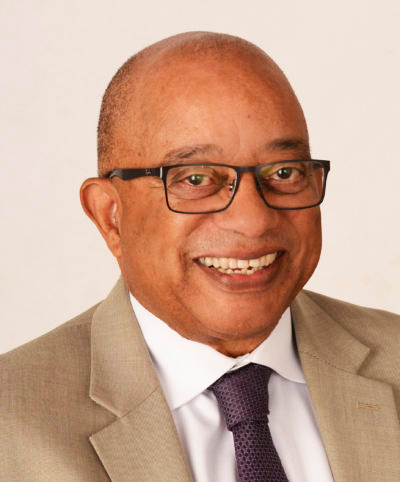
The Honorable Wilbur P. Edwards, Jr., had a winding journey to the legal profession: A military brat born in Yokohama, Japan, Edwards spent his childhood bouncing between U.S. Army posts throughout the Eastern U.S. and Germany before graduating from Harvard College. In the years that followed, he flourished in the commercial real estate business, acquiring property for Grand Union Supermarkets, Southland Corporation (now 7-Eleven), and Toys “R” Us.
In 1981, Judge Edwards was accepted to Boston College Law School, where he met his wife Evelynne Swagerty. After graduation, he began practicing in commercial real estate, housing, and landlord-tenant disputes. He eventually joined Denzil McKenzie & Associates, which would soon become McKenzie & Edwards, P.C. His expertise in housing and the commercial real estate industry caught the attention of Massachusetts Acting Governor Jane Swift in 2002, when he was appointed to the Southeast Housing Court, serving Plymouth, Bristol, and Barnstable Counties.
For over 16 years, Judge Edwards presided over trials concerning landlord-tenant disputes, building code violations, and zoning issues until his retirement in 2018. Shortly thereafter, Governor Charlie Baker appointed Judge Edwards to the Massachusetts State Ethics Commission, which enforces conflict-of-interest and financial disclosure laws for public employees, capping a long-time career of public service.
 Leslie E. Harris Leslie E. Harris ’84
Leslie E. Harris Leslie E. Harris ’84
Leslie E. Harris
Class of 1984
I’ve gone to three colleges. The one I felt the most allegiance to has been Boston College Law School because of the way they supported me and the way they opened doors for me.
Leslie E. Harris was working as a probation officer after earning his bachelor's degree from Northwestern and master's from Boston University when he started thinking about law school. Influenced by friends who had attended BC Law and drawn to its Jesuit focus on service, he came to campus and became an active member of the Black Law Students Association, attributing his success to supportive classmates, faculty, and staff. The year after graduating, Harris became one of the founding members of the BC Law Black Alumni Network (BAN) and has remained dedicated to fostering community and diversity at BC Law and within the broader legal profession.
Judge Harris served as an assistant district attorney and then as a public defender before his 1994 appointment as a justice to the Juvenile Court. He handled many types of cases during his 20 years on the bench but counts his experiences with adoptions as the most meaningful. He facilitated the first adoption for a gay couple in Massachusetts and then further celebrated by performing the couple’s wedding after the Supreme Judicial Court’s decision in Goodridge v. Department of Public Health (2003) brought marriage equality to the Commonwealth. Judge Harris continues to serve on countless boards and committees in service to his community.
HIGHLIGHTS:
- Founding member of BAN
- Associate Justice for the Suffolk County (MA) Juvenile Court
 Evelynne Swagerty Evelynne Swagerty ’84
Evelynne Swagerty Evelynne Swagerty ’84
Evelynne Swagerty
Class of 1984
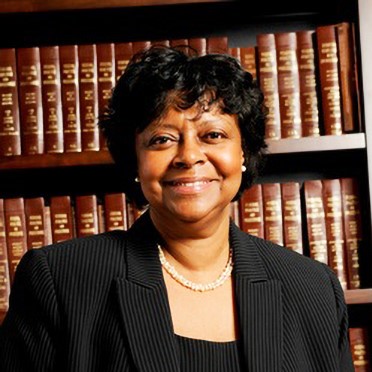
Growing up in eastern Tennessee, Evelynne Swagerty was a member of the final graduating class of Tanner High School, a segregated, all-Black school in Newport, TN. When she enrolled at East Tennessee State University (ETSU) in the fall of 1965, Swagerty was one of four Black women to fully integrate the school’s dormitories. By that point, breaking barriers had become second nature for Swagerty; she was elected president of ETSU’s Women’s Counsel, which provided guidance to the school for rulemaking in the very women’s dormitories that she integrated.
Driven by a desire to create change, Swagerty attended the Smith College School of Social Work and worked for nearly a decade as a psychiatric social worker at Massachusetts General Hospital before deciding to attend Boston College Law School in 1981. There, she took a course with Professor Ruth-Arlene Howe along with classmate Wilbur Edwards. The two married after law school and are a favorite BC Law couple!
After graduation, she spent time in the Massachusetts Attorney General’s Office; worked as Senior Counsel for the Federal Deposit Insurance Corporation (FDIC); and before retirement, worked for years as Assistant General Counsel and Senior Vice President of the Corporate Legal Department of Bank of America. A passionate advocate for the children of Massachusetts, Swagerty has served on the board of directors for Boston CASA, a local nonprofit organization dedicated to pairing children with special advocates to navigate the legal system. She has selflessly volunteered to supervise cases, served as guardian ad litem, and supported the juvenile courts of Middlesex and Suffolk counties.
 Danilo Avalon Danilo Avalon ’95
Danilo Avalon Danilo Avalon ’95
Danilo Avalon
Class of 1995
BC felt like home. It felt like family. It felt like I could be successful here.
Danilo Avalon was born in Colón, Panama, and immigrated with his family to the U.S. as a kid, settling into life in Brooklyn, NY, as a teenager. A legal career did not even occur to him as a possibility until his undergraduate years at Tufts University. He applied to many schools but came to BC Law because of its reputation and the feeling of connectedness that he had when he visited. He was active with Black Law Students Association (BLSA) during his time at BC and took a variety of courses, not quite sure what area of practice appealed to him. Upon graduation, he experimented with various work settings, including bankruptcy, secured transactions, and environmental law. Eventually, he discovered a passion for tort litigation and started his own firm. Avalon remains grateful for his professors’ advice to stay open and not be boxed into a particular career path.
After graduation, Avalon became a dues-paying member of the Black Alumni Network (BAN) but recalls not being truly involved until Professor Ruth-Arlene Howe asked if he would consider hosting the annual BAN/BLSA Welcome BBQ. Since “you rarely say no to Professor Howe,” he agreed and happily hosted the event for years. He got more involved with BAN and enjoyed connecting with and being a resource for students and other alumni. He also likes sharing information about Boston and helping to chip away at preconceived notions of his adopted hometown.
Today, in addition to running his own practice, Avalon works hard to bring diverse judges onto the bench. He believes deeply in the power of empathy for good decision-making and advocates for the training of lawyers and appointment of judges who come from all walks of life.
 Susan Maze-Rothstein Susan Maze-Rothstein ’85
Susan Maze-Rothstein Susan Maze-Rothstein ’85
Susan Maze-Rothstein
Class of 1985
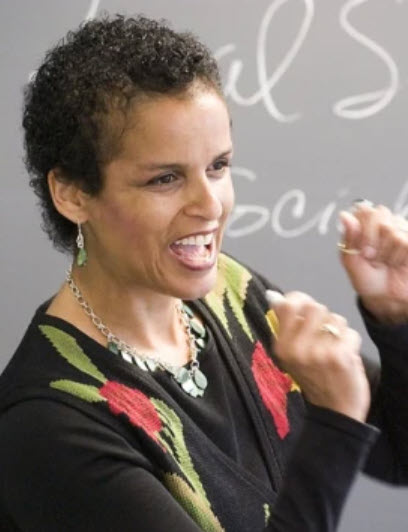
Growing up in a Jewish, multiracial family in a majority-white neighborhood, Susan Maze-Rothstein knew that she wanted to create social change and fight injustice. After years of dismissal by teachers, she proved the naysayers wrong when she fought her way to Cornell University and, eventually, Boston College Law School in 1982.
After years of service as an administrative law judge at the Massachusetts Department of Industrial Accidents, Maze-Rothstein made a move into academia with the goal of preparing the next generation of attorneys for socially conscious legal careers. For over two decades, she taught at Northeastern University School of Law, where she helmed the school’s signature social justice project. She personally mentored over 100 students as they completed over 12,000 hours of research on restorative justice and diversionary alternatives to criminal sentencing. During that time, Maze-Rothstein also advised the Boston Public Schools on the revision of its disciplinary framework to include restorative justice practices and avoid suspension and expulsion where possible.
In 2019, she pivoted from teaching at Northeastern Law to focus on this restorative justice work. Maze-Rothstein was a founding member of Our Restorative Justice, a Massachusetts nonprofit aimed at dismantling the school-to-prison pipeline and served as president of the board of directors. Today, she is the co-director of the Center for Restorative Justice at Suffolk University, where her thought leadership in the realm of social justice legal practice continues to inspire and provoke change.
Maze-Rothstein has served as president of the Black Alumni Network (BAN) and been a fierce advocate for the recruitment, retention, and support of Black students.
HIGHLIGHTS:
- Administrative law judge
- Professor at Northeastern Law School
- Founding member of Our Restorative Justice
- Former BAN president
 Damon Hart Damon Hart ’99
Damon Hart Damon Hart ’99
Damon Hart
Class of 1999
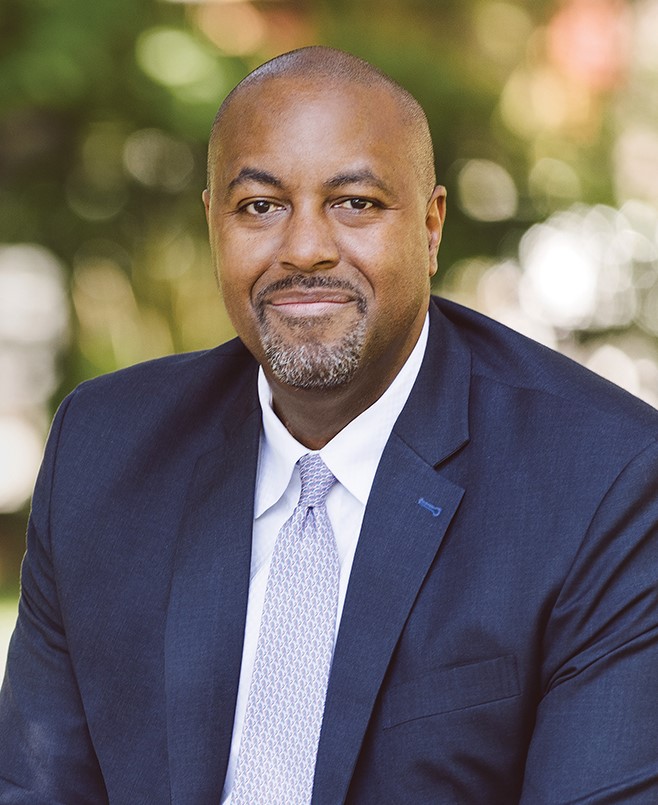
While attending the College of the Holy Cross, Damon Hart played varsity football and then basketball; in the 1993 NCAA Tournament, he was the basketball team’s starting forward. Years later, when he graduated from Boston College Law School in 1999, fellow BC Law alumni Chuck Walker ’78 and Steven Wright ’81 recruited Hart to join the law firm Holland & Knight, where he became partner and worked for 11 years, with Wright as his mentor.
After years in big law, Hart made the leap to in-house counsel at Liberty Mutual Insurance, the world’s sixth largest provider of property and casualty insurance, where he quickly ascended through the ranks. In January 2022, he became Liberty Mutual’s Chief Legal Officer and Executive Vice President, one of only 62 Black CLOs at Fortune 1000 companies in the country at the time.
Outside of the boardroom, Hart remains deeply committed to public service. He is a passionate advocate for The Home for Little Wanderers, regularly coaches youth sports, and was a co-founder of the New Commonwealth Racial Equity and Social Justice Fund, which was launched in the wake of the murder of George Floyd in 2020. Thanks in part to his efforts, the Fund has raised more than $20 million to address systemic racism in Massachusetts.
HIGHLIGHTS:
- College basketball player
- Liberty Mutual Chief Legal Officer
- Past president of Mass Black Lawyers Association
- Co-founder of New Commonwealth Racial Equity and Social Justice Fund
 Tanisha Sullivan Tanisha Sullivan ’02
Tanisha Sullivan Tanisha Sullivan ’02
Tanisha Sullivan
Class of 2002
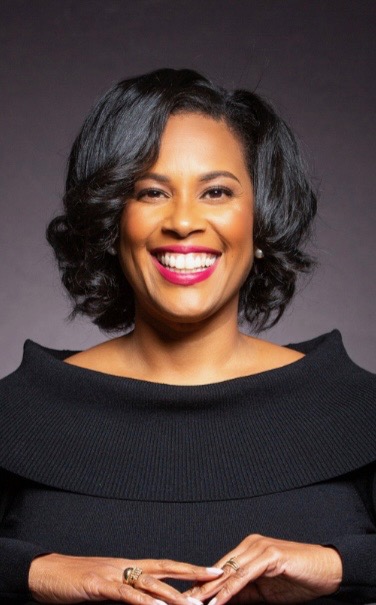
As a BC Law student, Tanisha Sullivan was president of Black Law Students Association (BLSA) and convened a State of Students of Color Town Hall with the dean. Since graduating from BC Law in 2002, Sullivan has been on the forefront of the fight for racial justice, equity, and inclusion. In 2017, she was elected President of the Boston Branch of the NAACP, the oldest civil rights organization in the country, a position she continues to hold as of 2024.
A thought-leader and policy maven, Sullivan served as the very first Chief Equity Officer of Boston Public Schools, leading their efforts to increase educational access and opportunity in one of the largest urban school districts in the country. Since leaving that position in 2015, she has worked in various executive roles at the biopharmaceutical giant Sanofi. She now leads the company’s External Engagement, Health Equity Strategy, and Massachusetts Government Affairs departments.
Sullivan never forgot her years at BC Law. A former president of the Black Alumni Network (BAN), she is a consistent presence on campus, often returning to speak at panels hosted by the Rappaport Center for Law and Public Policy on issues like educational inequity and the intersection of race and public policy. She also serves on the Rappaport Center advisory board.
HIGHLIGHTS:
- President of Boston NAACP
- First Chief Equity Officer of Boston Public Schools
- Former BLSA and BAN president
 Rosaline Valcimond Rosaline Valcimond ’05
Rosaline Valcimond Rosaline Valcimond ’05
Rosaline Valcimond
Class of 2005
I love connecting other people, especially younger students. I love saying to students and recent graduates that there isn’t anywhere you can go that Black alumni won’t be there for you and connect with you.
Rosaline Valcimond was born in Port-au-Prince, Haiti, but grew up largely in Boston. She knew she wanted to be a lawyer and justice-seeker from a young age, a goal that was solidified during courtroom visits through undergrad internships while at UMass Amherst. She encountered a judge along the way who said she must go to the BC Law, so she applied and came directly from college. During her time at BC Law, she did the Negotiations Competition, participated in the Immigration and Asylum clinic, and served as president of the Black Law Students Association (BLSA).
Since graduating, Valcimond has worked in the public and private sectors. Currently, she is corporate counsel for a biopharmaceutical company that develops first-in-class medicines to improve treatment for people with kidney and cardiorenal disease. Prior to that, she held general counsel positions for the Boston Public Health Commission and the Metropolitan Area Planning Council. She also practiced labor and employment law at a Boston firm.
Despite her busy professional schedule, Valcimond consistently attends BC Law Black Alumni Network (BAN) and BLSA events. She has served on the BAN executive board for years and remains deeply connected to the law school community. She is committed to growing the ranks of Black BC Law students; encouraging social justice work; and making sure that students know they are loved, supported, and have a place in the profession.
 Arianne Waldron Arianne Waldron ’14
Arianne Waldron Arianne Waldron ’14
Arianne Waldron
Class of 2014
BAN is the place where I think I am most able to be the friend, sister, comrade, and mentor that I want to be and that I wish I had.
A near-lifelong resident of Dorchester, MA, Arianne Waldron is fueled by her fervent commitment to creating space for Black attorneys in the Massachusetts legal community. After immigrating from Trinidad as a toddler, Waldron came up through Boston Public Schools, graduating from Boston Latin School. While attending BC Law, she grew close with Professor Ruth-Arlene Howe, who encouraged her to “find her people” and build a community here. She struggled with that during law school, often feeling isolated and like she did not belong.
Despite her own difficult experience as a law student, Professor Howe’s words stuck with her. Waldron decided to join the BC Law Black Alumni Network (BAN) in 2018 and immediately felt the love of the community. Understanding the importance of strong cohorts of diverse students, she dove into BAN efforts to improve representation at BC Law and to encourage Black students to attend. That year and in years since, BAN has personally called every single admitted Black student, encouraging them to be a part of the vibrancy of Boston and BC Law. The result is a dramatically more diverse class of 2024 than 2014.
After graduating with a dual J.D./M.Ed. from BC, Waldron spent over seven years at Goodwin Procter before leaving to join the United States Court of Appeals for the First Circuit. In addition to her work with BAN, Waldron is an active member in the Boston NAACP and the Massachusetts Black Lawyers Association. But her accomplishments do not end there: Waldron is co-owner of District 7 Tavern in Roxbury, MA, Boston’s oldest Black-owned bar and favorite gathering space for BC Black Law Students Association and BAN members.
HIGHLIGHTS:
- Current BAN president
- First Circuit attorney
- BC Law Outstanding Young Alumni
- Co-owner of Roxbury’s District 7 Tavern
 Zane Fernandez Zane Fernandez ’21
Zane Fernandez Zane Fernandez ’21
Zane Fernandez
Class of 2021
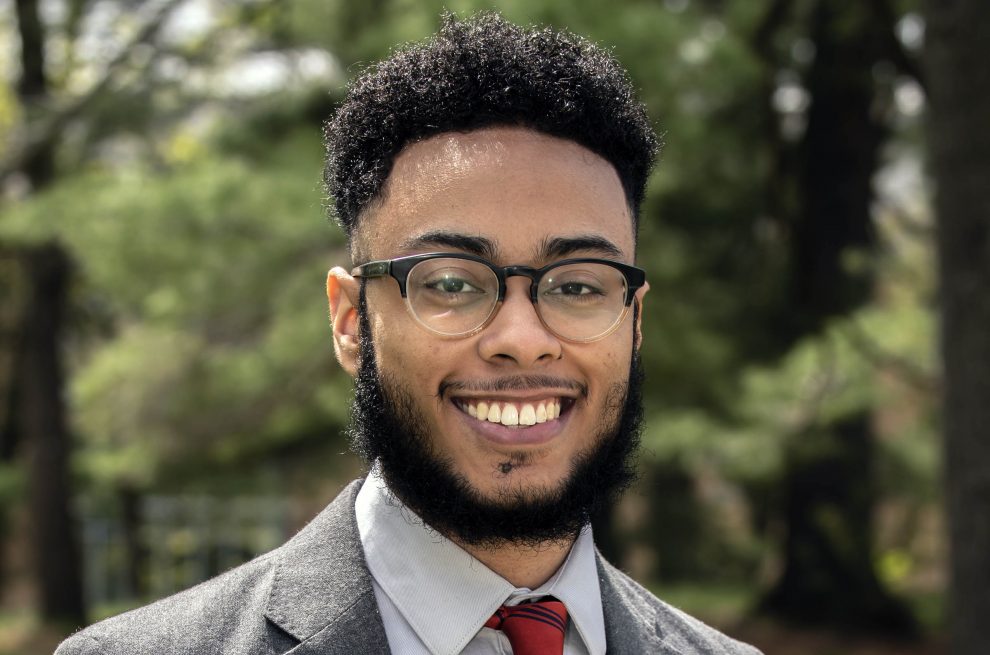
When I visited BC Law, I felt a strong, intangible sense of community that I had never experienced before. I wanted to study law in this positive environment because I knew that would help me learn best.
Aware of his deep interest in politics, government, economics, and social justice, Fernandez’s mentors during his undergraduate years at the City College of New York suggested that he consider law school. Upon arriving at BC Law, Fernandez looked for the earliest opportunities to explore the intersection of business and law. In the spring of his first year, he took an elective on negotiation skills before moving onto courses like Secured Transactions, Corporations, and Bankruptcy. He participated in the Community Enterprise Clinic during his 3L year. That experience allowed him to use the knowledge he had obtained in class to actually represent entrepreneurs and small business owners—often women and people of color. This involved helping clients with issues such as securing nonprofit status, negotiating employment agreements and leases, and applying for trademarks.
Fernandez served as co-president of Black Law Students Association with classmate Chinyere Okogeri ’21 during his 2L year. He also participated in the BC Law pro bono trip to Arizona to work for the Navajo Nation. While juggling courses and extracurricular duties, Fernandez was a powerful voice on campus, writing and signing onto community letters on issues like grading equity during COVID-19 and continued calls to disarm the BC police.
After law school, Fernandez joined Ropes & Gray as a Private Equity Associate and learned how to handle large-scale business transactions. He then decided to follow his passion for working with startups and moved to a smaller firm with that focus. Fernandez is involved with the Hispanic National Bar Association, the Massachusetts Black Lawyers Association, the Boston Bar Association, and enjoys making connections with students and other alumni during his regular attendance at BC Law Black Alumni Network events.
 Chinyere Okogeri Chinyere Okogeri ’21
Chinyere Okogeri Chinyere Okogeri ’21
Chinyere Okogeri
Class of 2021
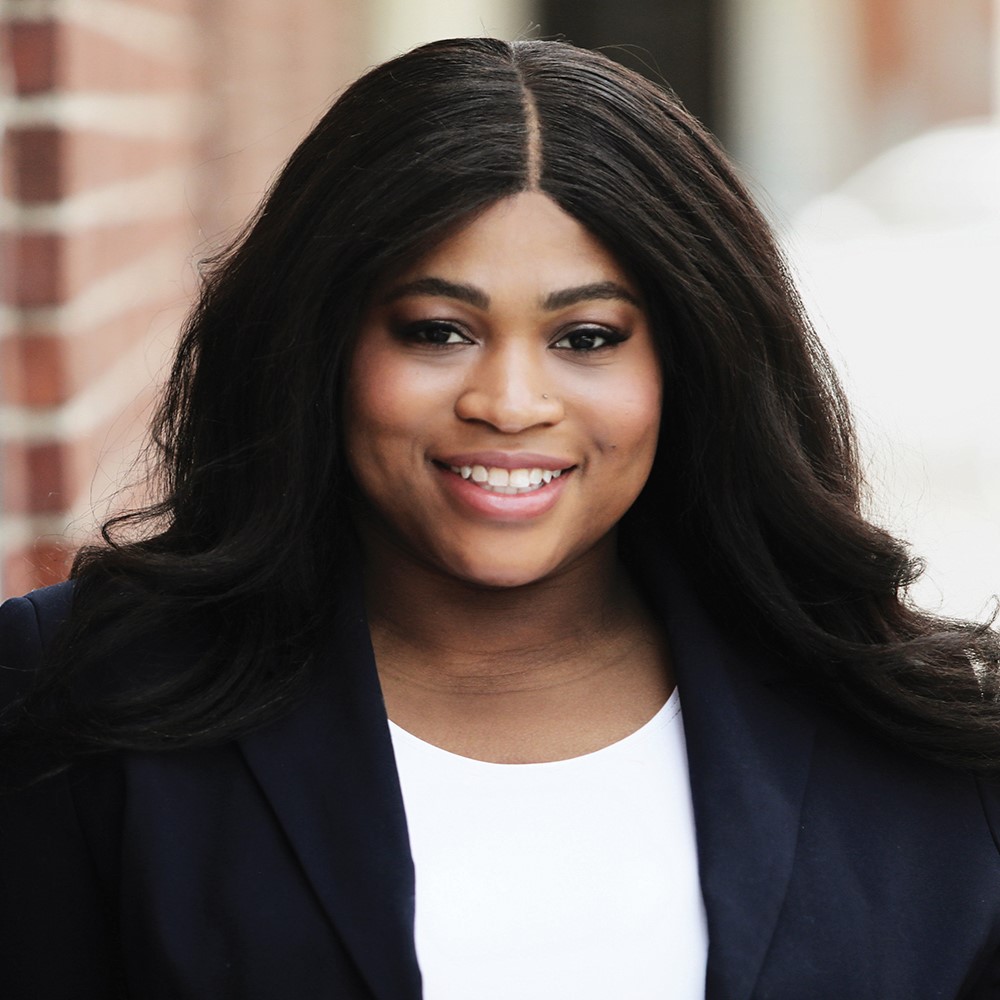
I see my role as an advocate whose sole responsibility is to make sure that those not at the table—which tends disproportionately to be those of diverse identities—have their voices heard and amplified.
Growing up, Chinyere Okogeri wanted to be a doctor and a lawyer. Intensely driven by the urge to make a difference and help others, she majored in behavioral neuroscience at Colgate before taking the leap into the legal profession. At BC Law, she quickly established herself as a leading advocate for diversity and equity on campus. She served as co-president of Black Law Students Association alongside Zane Fernandez ’21 and was the head student director for LAHANAS (the umbrella organization for BC Law affinity groups). She also was a member of the BC Law Diversity and Inclusion Task Force. Okogeri has consistently amplified the voices of marginalized people. In Nicaragua, she volunteered with doctors in remote communities that often lacked access to medical services. While at BC Law she worked as a student attorney with the Boston College Innocence Program, helping to exonerate wrongfully convicted inmates across Massachusetts.
As of 2024, Okogeri works at Sullivan & Worcester, where she represents a broad range of public and private clients in corporate and finance matters. She is an active member of Massachusetts Black Women Attorneys, the Massachusetts Black Lawyers Association, and volunteers as Corporate Secretary of the Neighborhood House Charter School in Dorchester, MA.
 Winston Bodrick Winston Bodrick ’22
Winston Bodrick Winston Bodrick ’22
Winston Bodrick
Class of 2022
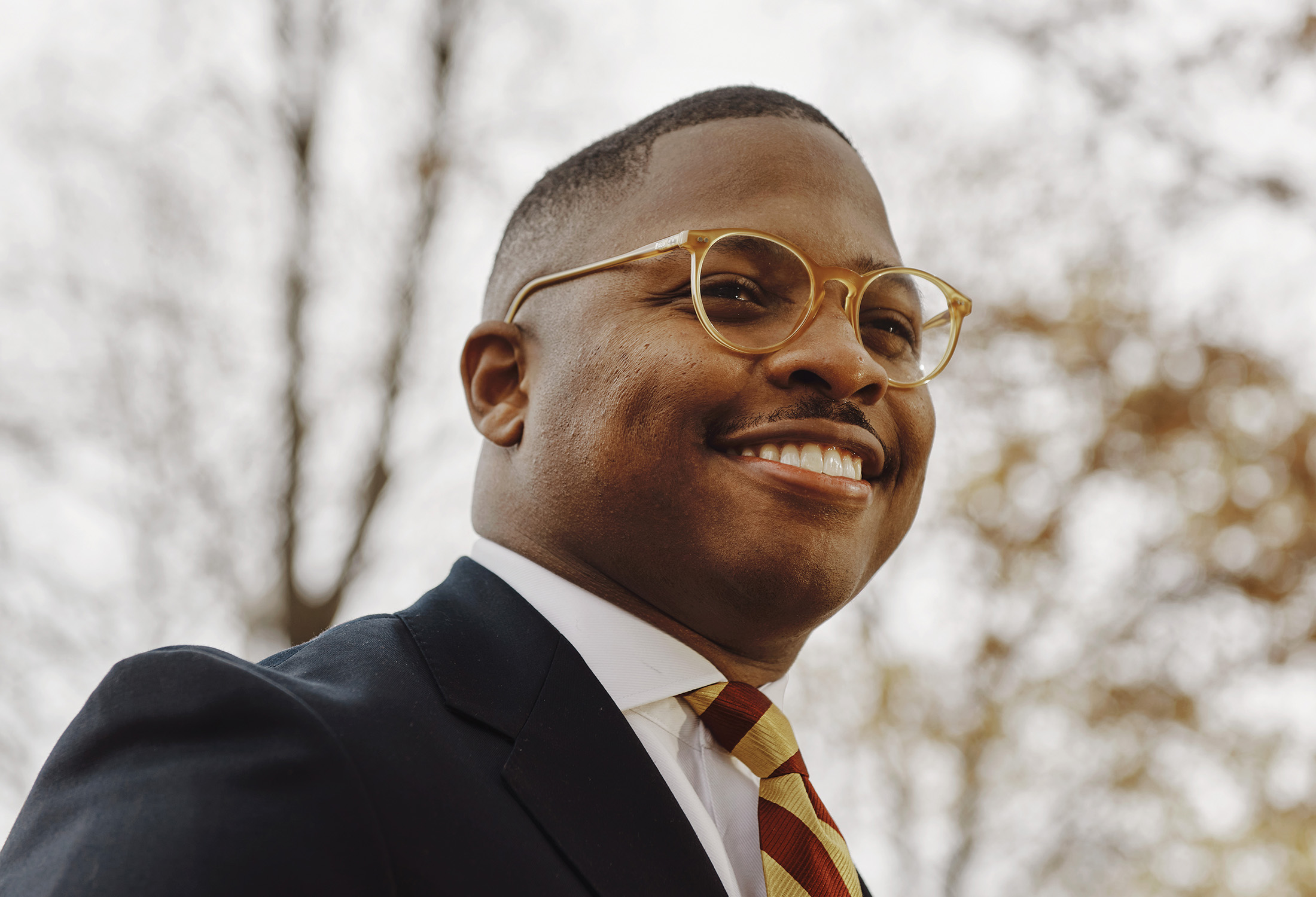
Boston is ripe for opportunity. This city is changing right before our eyes, and I want to be part of the brush that paints the future of this city. I would love to continue building upon Boston’s legacy of Black excellence.
The son of a pastor and an educator, Winston Bodrick had a keen appreciation for community building, economic development, and political activism from his earliest days in Atlanta, GA. That passion steered him toward Morehouse College, where he studied sociology and played on the football and basketball teams; Dartmouth College, where he earned a master’s degree in Cultural Studies; and BC Law, where he served as a vice president of the Black Law Students Association, was active in LAHANAS (the umbrella organization for BC Law affinity groups), and worked with Disability Rights Louisiana.
After graduation, Bodrick worked as a corporate associate for the law firm Kirkland & Ellis. He then co-founded Ambry Development Group, a real estate development firm that focuses on the creation of environmentally sustainable and racially inclusive communities in the Boston area and beyond.
Outside of his professional life, Bodrick remains committed to giving back to the community and cultivating a sense of shared Black history. He serves as the Chairman of the Board of Trustees for the Twelfth Baptist Church, a Boston landmark that served as a central organizing space for abolitionism in the early 19th century. He also sits on the Board of Directors for the Second African Meeting House and is a member of the Boston Branch of the NAACP and the Massachusetts Black Lawyers Association.
 Vannessa Lawrence Vannessa Lawrence ’22
Vannessa Lawrence Vannessa Lawrence ’22
Vannessa Lawrence
Class of 2022
When I came to visit, there was an overwhelming sense of community. People were incredibly friendly and were actually interested in what I had to say—it wasn’t lip service.
During her undergraduate years at Colgate, Vannessa Lawrence laughed when someone suggested that she go to law school. Now a litigator, Lawrence could not imagine it at the time—she had never even met a lawyer. But once the idea was planted, it seemed like the perfect way to translate her interest in racial and social justice into a career.
Once on campus, Lawrence won a Rappaport Fellowship, awarded to promising students who are committed to public policy careers. That fellowship led to a placement in the Civil Rights Division of the Massachusetts Attorney General’s Office, where she now works as a lawyer. The opportunity provided on-the-ground experience with discrimination claims, housing issues, COVID-19 policies, and more. She also jumped into law school student leadership roles, becoming co-president of the Black Law Students Association (BLSA) in her 2L year, alongside Elizabeth Morrison ’22. Lawrence’s 1L year had been disrupted by COVID-19, so community-building (including kickball games and movie nights) in the wake of months of isolation was at the top of the agenda.
Crucially, Lawrence’s BLSA leadership role began after the summer of George Floyd’s murder, so a significant part of her role was providing students a place to process, grieve, heal, and activate. In August 2020, Lawrence and the rest of the BLSA executive board issued a powerful call to action to the BC Law community, which included demands for a race-related grievance procedure, a more diverse and socially aware 1L curriculum, a required Critical Race Theory course, and the aggressive recruitment and retention of Black faculty. The community took note, and many of BLSA’s demands have been put in place, though the work of improving and growing the BC Law community continues.
 Travis Salters Travis Salters ’23
Travis Salters Travis Salters ’23
Travis Salters
Class of 2023
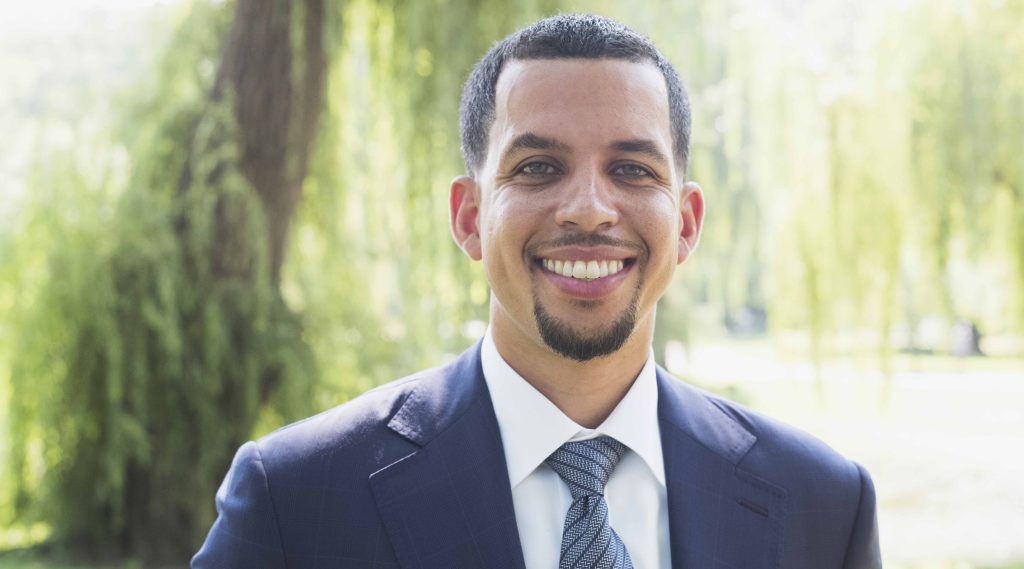
I remember all of my one-on-one meetings with upperclassmen who showed nothing but love and support . . . . As if that wasn’t enough, I was then embraced by a host of BC Law alumni who ensured I had everything I needed.
Prior to law school, Salters taught high school literature in Atlanta, GA, through Teach for America. During that time, he co-founded Next Generation Men and Women, an Atlanta-based nonprofit that works to ensure that traditionally overlooked students are prepared for success after high school.
During his three years at BC Law, the first of which was fully remote due to the pandemic, Salters served as co-president of the Black Law Students Association (BLSA) with his classmate Kosisochi (K.P.) Ifediba ’23. During their tenure, Salters and K.P. participated in a hugely successful event on reparations, co-sponsored by BLSA and the Rappaport Center for Law and Public Policy. Salters also was president of the BC Law Impact Blog, which provides insight into the student experience at the law school. In that role, he caught the attention of the community with his posts on everything from Newton’s food scene to interviews with deans to exam tips and dealing with imposter syndrome.
In 2022, Salters was awarded the prestigious Fletcher “Flash” Wiley Award by the Massachusetts Black Lawyers Association for his academic excellence and commitment to diversity, inclusion, and supporting his classmates and colleagues. Salters practices in the Business Law Department at Goodwin in Boston. He continues to serve Next Generation Men and Women as an emeritus board member.